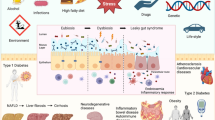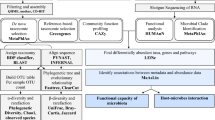Abstract.
It is generally accepted that the bacterial community resident in the human intestinal tract has a major impact on gastrointestinal function and thereby on human health and well-being. Considerable efforts have been made to influence the intestinal microbiota by dietary means in such a way that the health of the host is beneficially affected. Pro- and prebiotics are food products that are specially designed for this purpose. Parallel to the increase in the acceptance of such products by the consumer, the scientific interest in the mechanisms underlying their presumed effects, such as pathogen inhibition, immune modulation or anti-carcinogenicity, has grown continuously in recent years. Some of these effects have been established by several independent studies, but others are still controversial. This review relates the health claims made for the pro- and prebiotic food products to the facts established by in vivo and in vitro studies. The assessment of pro- and prebiotic effects on the microbial gut ecosystem is highly improved and facilitated by the application of molecular methods. Biotechnological aspects of the production of pro- and prebiotics are discussed.
Similar content being viewed by others
Author information
Authors and Affiliations
Additional information
Received revision: 5 September 2000
Electronic Publication
Rights and permissions
About this article
Cite this article
Simmering, R., Blaut, M. Pro- and prebiotics – the tasty guardian angels?. Appl Microbiol Biotechnol 55, 19–28 (2001). https://doi.org/10.1007/s002530000512
Received:
Accepted:
Issue Date:
DOI: https://doi.org/10.1007/s002530000512




